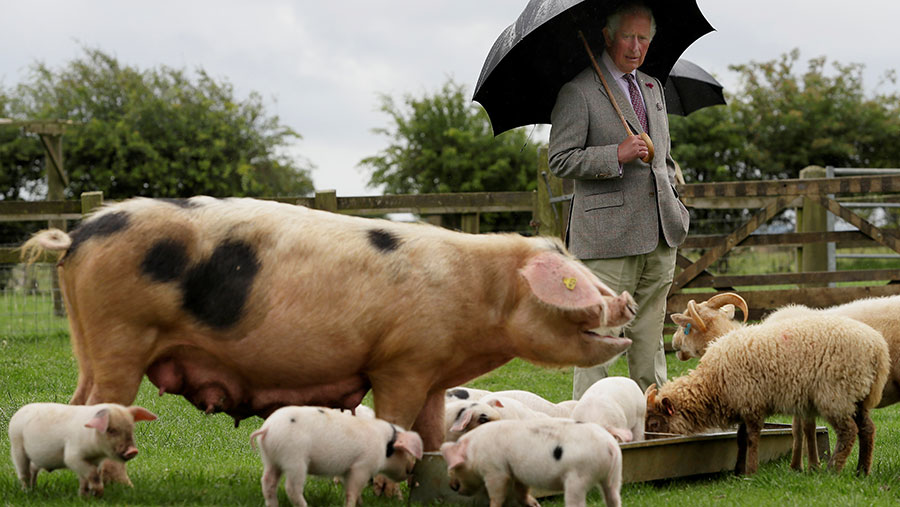Prince Charles calls for meat consumption cut ahead of COP26
 © Pool New/Reuters/Adobe Stock
© Pool New/Reuters/Adobe Stock Prince Charles has urged the public to eat less dairy, meat and fish to help cut greenhouse gas emissions from farming ahead of a global summit on climate change.
Speaking to the BBC, the prince revealed that he regularly abstains from eating meat and dairy products on environmental grounds.
“For years, I haven’t eaten meat and fish on two days a week. And I don’t eat dairy products on Monday,” Prince Charles said.
“If you all did that you would reduce a lot of the pressure on the environment and everything else,” he added.
Asked how the UK should respond to climate change, Prince Charles said: “We could have an enormous impact as somewhere that was renowned for its environmental quality, the way we farm and the products we produce.”
The prince’s comments were made in a feature heralding global climate change talks at the COP26 summit in Glasgow next month.
There has been a flurry of activity in the build-up to the talks, and much of the publicity has focused on meat eating, despite livestock farming not being central to planned discussions.
Consumption falls
Last week University of Oxford researchers revealed meat eating in the UK had fallen by 17% over the past decade.
Researchers used dietary data recorded in the annual National Diet and Nutrition Survey, which requires respondents to keep a food diary for four consecutive days.
The analysis showed that, in the 10 years to 2019, average meat consumption dropped from 103g a person a day to 86g/day – roughly 17%.
The decline was seen in red meat consumption – down 13.7g/day – and processed meat, which dropped by 7g/day.
White meat consumption bucked the trend with a daily 3.2g increase a person.
Head researcher Cristina Stewart called the reductions positive and said she hoped her team’s work would help tailor public health policies to accelerate the reduction in meat consumption.
Countryside COP26
However, UK farming bodies have put out a raft of myth-busting facts to counter misinformation, and are set to stage their own environmental summit.
See also: QMS launches toolkit to debunk myths about red meat
The summit – Countryside COP26 – will take place on 11-15 October, two weeks ahead of the main talks.
Organisers have said there is a limited amount of positive attention on the UK’s rural economy, yet agriculture is already making a contribution to reaching net-zero targets.
The programme includes a mix of virtual and live events involving researchers, rural local authorities, education and farming leaders.
Each event will discuss specific subjects in depth to produce three to five key messages to drive implementation. These will be collated into an outcomes document of recommendations and actions for policymakers, the industry, research, the supply chain and investors.
Case studies
The National Sheep Association (NSA) has already consulted members and selected five case studies showing how flock-keepers manage the environment.
Among them is John Pawsey, from Shimpling Park Farms, Suffolk.
“Our diverse leys have improved soil health, while flowering legumes are great for pollinators and ground-nesting birds. We have so much diverse insect and bird life and take great pride in the knowledge that our holistic, low-input system is carbon negative.”
In Scotland, Sybil McPherson, Dalmally, Argyllshire, said her sustainably reared lamb used vegetation from land unsuitable for cultivation. “Native sheep breeds forage and use poor-quality grazing and enhance all environmental aspects,” Ms McPherson said.
And Cumbrian farmer Will Rawling added: “Grazing sheep is part of the solution to climate change and can assist with flood mitigation and enhance nature – an ambition of every farmer I know.
“We are part of nature. We cannot ignore it or work against it, because natural processes will prevail.”
